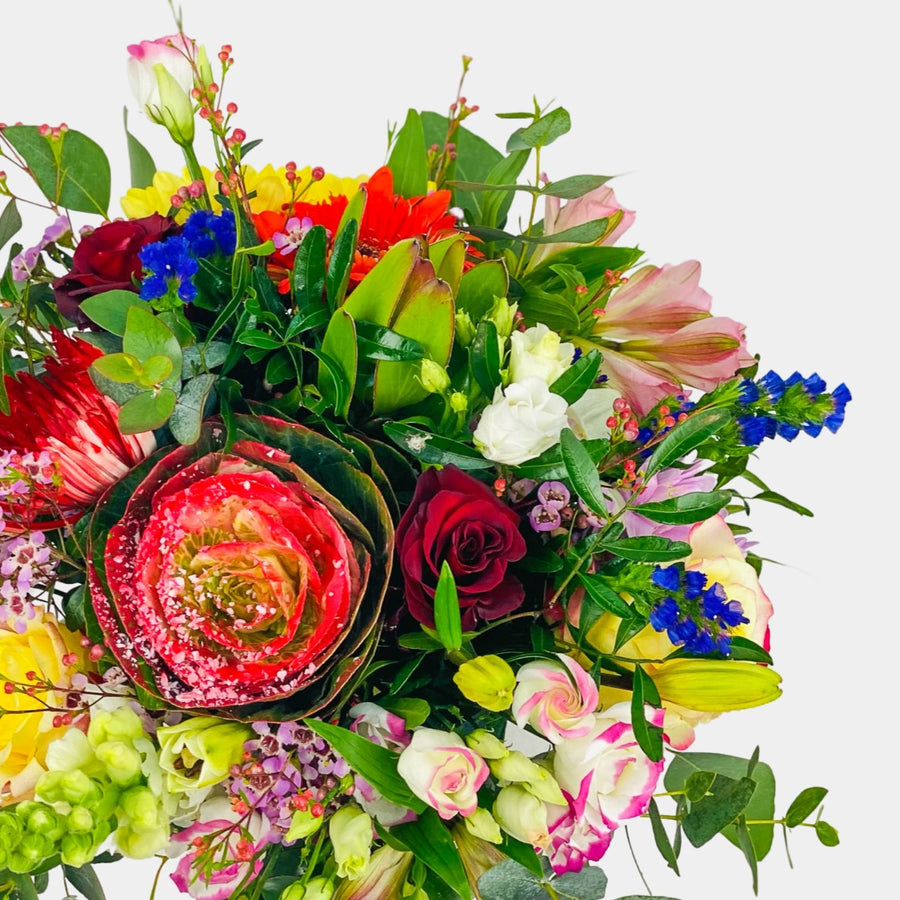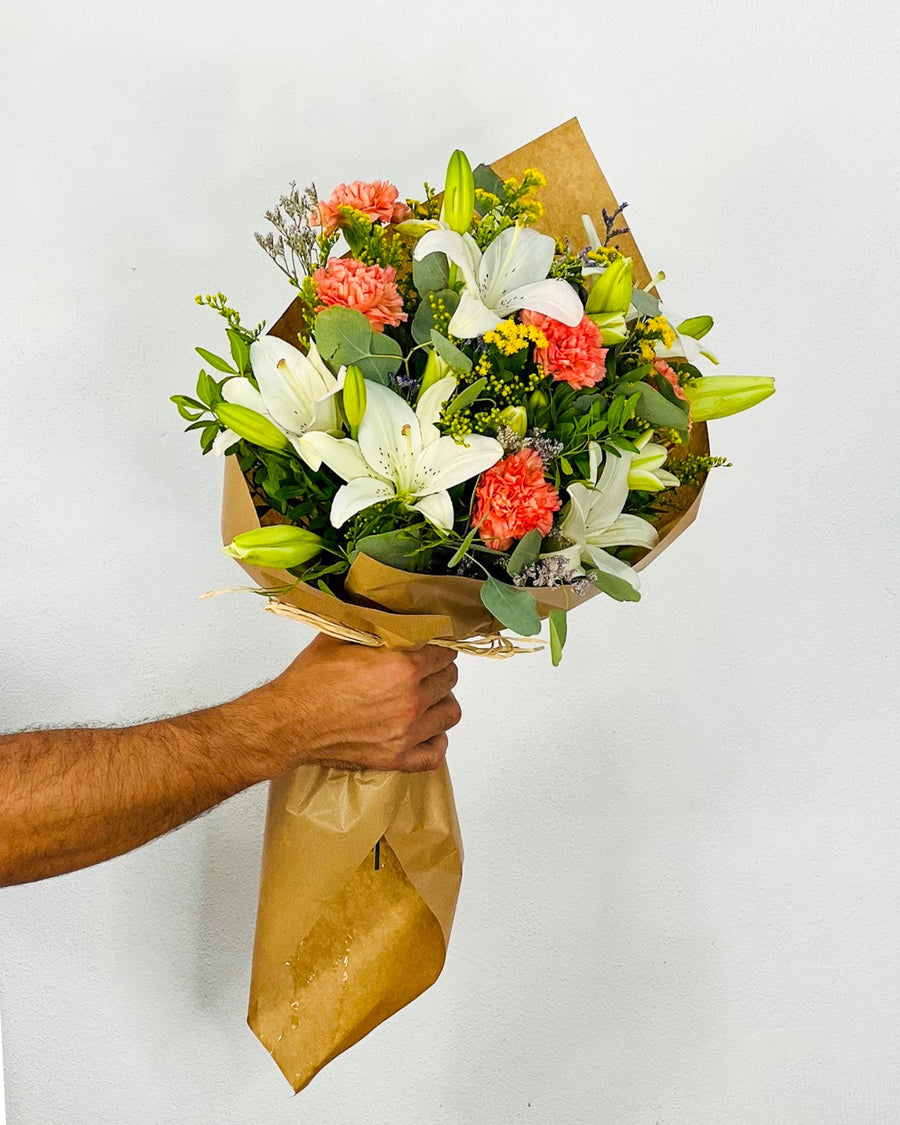Carnation
Carnations, scientifically known as Dianthus caryophyllus , are one of the most appreciated and popular flowers in the world. Its beauty and elegance, added to its wide variety of colors and aromas, have made this flower an essential element in gardens, floral arrangements and as a symbol of affection in many cultures. In this entry, we will explore the most notable characteristics of the carnation, from its scientific name to its care and its cultural significance.
Scientific Name and Origin of the Carnation

The scientific name of the carnation, Dianthus caryophyllus , comes from the Greek "dios," meaning "god," and "anthos," meaning "flower." The specific epithet, "caryophyllus", refers to cloves, due to the similarity in the aroma of this flower with cloves. Carnations are native to the Mediterranean region, which includes countries such as Spain, Italy and Greece. Throughout history, they have been cultivated in many parts of the world and various horticultural varieties have been developed.
Where Carnation Grows
The carnation is a perennial plant that is characterized by its resistance and adaptability to a variety of climatic conditions. Its scientific name is Dianthus caryophyllus . For this reason, it was known as the flower of the gods. Next, we will delve into the details related to its cultivation and care:
Climates and Cultivation Regions
-
Temperate Climates: Carnations thrive best in temperate climates. They feel comfortable in temperatures ranging between 15°C and 24°C. These conditions provide the ideal setting for its growth and flowering. In warmer climates, carnations may require partial shade to protect from intense heat.
-
Variety of Locations: Carnations are grown in gardens, pots and as cut flowers throughout the world. This means you can enjoy its beauty in both garden landscapes and fresh flower arrangements in your home.
Soils and Sun Exposure
-
Well-Drained Soil: One of the most important conditions for carnation success is well-drained soil. Avoid soils that retain excess water, as this can lead to problems such as waterlogging of the roots. Good water circulation is essential to prevent fungal diseases and keep roots healthy.
-
Sun Exposure: Carnations prefer a sunny or partially shaded exposure. Sunlight is essential to encourage abundant flowering, but in warmer climates, it is helpful to provide some shade during the hottest parts of the day to prevent the flowers from wilting.
Varieties and Geographic Adaptability

Carnations are very adaptable and can be found in a variety of geographic regions throughout the world. This has led to the development of many horticultural varieties that have been adjusted to specific local conditions. Some of these varieties include:
-
Carnations: The standard carnations, which come in a wide range of colors.
-
China Carnations: Originating in China, these varieties are known for their hardiness and adapt well to a variety of conditions.
-
Florence Carnations: With distinctively edged petals, these varieties add a special touch to floral arrangements.
-
Mini Carnations: Smaller, more compact versions, ideal for pots and smaller scale arrangements.
Essential Care
Carnations are relatively easy to care for , making them a popular choice for gardeners of all experience levels. Some guidelines to keep these flowers in their best shape include:
-
Irrigation: Keep the substrate evenly moist without waterlogging. Avoid excessive watering, since carnations are sensitive to excess moisture.
-
Fertilization: Feed plants with a balanced fertilizer in spring and summer to promote healthy growth.
-
Pruning: Trim spent flowers and diseased leaves to encourage continued flowering and reduce the risk of pests and diseases.
-
Protection against pests and diseases: Control common pests, such as aphids or mites, and prevent fungal diseases with good growing habits and the use of natural pesticides when necessary.
Varieties and Colors of Carnations

The versatility of the carnation is manifested in its impressive range of colors, making it a popular choice for expressing feelings and emotions through floral arrangements. Here, we will explore in greater detail some of the most notable colors and varieties of carnations:
-
Passionate Red: Red carnations symbolize passionate love and admiration. They are a classic choice for expressing romantic feelings and desire. The intensity of its fiery red color brings a fiery spark to any floral arrangement.
-
Varied Pink: Pink carnations cover a wide range of shades, from pale and delicate pink to deep and vibrant pink. Pink carnations are commonly associated with gratitude, friendship, and admiration. A bouquet of pink carnations is a lovely gesture to show affection and affection.
-
Pure White: White carnations represent purity, innocence and loyalty. They are a popular choice at weddings and religious occasions. The simplicity and elegance of white carnations add a touch of purity to any setting.
-
Radiant Yellow: Yellow carnations symbolize happiness, joy and gratitude. Its bright and warm color evokes a feeling of sun and warmth. Yellow carnation bouquets are ideal for celebrating moments of happiness and achievements.
-
Energetic Orange: Orange carnations represent emotion and vitality. They are a bold and joyful choice to express enthusiasm and passion. Orange carnations add a vibrant and energetic touch to any floral composition.
-
Bicolor and Striped Varieties: In addition to solid colors, there are varieties of carnations that feature unique color combinations. Bicolor carnations, with two colors on a single petal, create striking visual arrangements. On the other hand, striped carnations feature striped patterns on their petals, giving them a unique and attractive appearance. These special varieties add a special and creative touch to gardens and floral bouquets.
Combinations in bouquets
Combining carnations with other flowers in bouquets is a creative way to create stunning floral arrangements. Lilies and daisies are two options that complement each other beautifully with carnations, as they provide a diversity of shapes, sizes and colors that enrich the floral design. Here I tell you a little more about how these flowers combine with carnations:
Lilies

Lilies are majestic and elegant flowers that add height and a touch of sophistication to bouquets. There are several varieties of lilies, but oriental lilies and Asiatic lilies are two of the most popular choices to pair with carnations. Some considerations when combining lilies with carnations, as in our EMA bouquet , are:
-
Variety of Colors : Lilies come in a wide variety of colors, including white, pink, yellow, orange and purple. You can select lilies that complement or contrast the colors of the carnations in your bouquet.
-
Height and Elegance : Lilies add height to the arrangement, creating a feeling of majesty. This height can be balanced with carnations which are generally more compact.
-
Sweet Scent : Some varieties of lilies, such as oriental lilies, have a sweet, pleasant aroma that blends well with the soft aroma of carnations.
Daisies
Daisies are cheerful, fresh-looking flowers that combine wonderfully with carnations to create bouquets with a country and cheerful touch. Some points to keep in mind when combining daisies with carnations, as in our Butterfly bouquet , are:
-
Contrast of Shapes : Daisies have a distinctive shape with white petals and a yellow center. This shape contrasts with the soft, rounded petals of the carnations, adding visual interest to the bouquet.
-
Seasonality : Daisies are especially popular in spring and summer, making them ideal for seasonal bouquets that celebrate the freshness and vibrancy of these seasons.
-
Complementary Colors : You can choose daisies in colors that complement the carnations in the bouquet. For example, white daisies with pink carnations or yellow daisies with orange carnations.
In short, the carnation, with its scientific name Dianthus caryophyllus , is a beautiful flower that is grown around the world due to its elegance, vibrant colors and delicate fragrance. With proper care, carnations will bloom for a long time, adding beauty and meaning to gardens and flower arrangements. Whether as an expression of love or as part of floral decoration, the carnation will always dazzle with its timeless charm.

